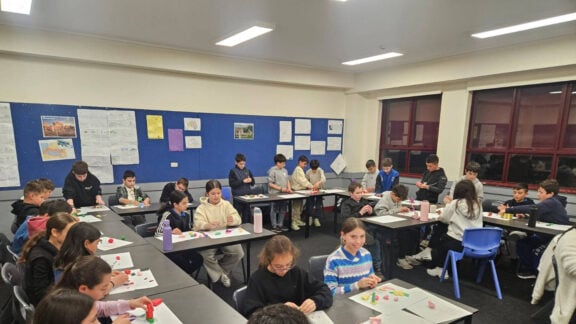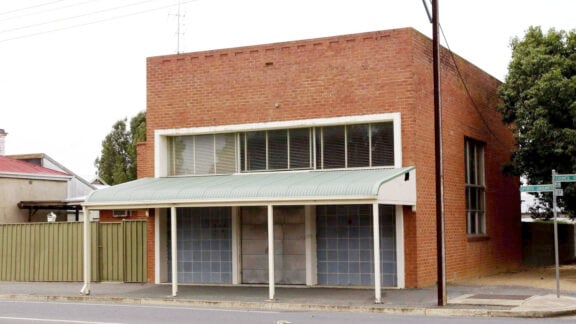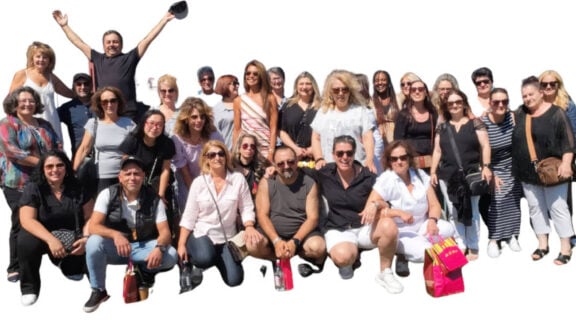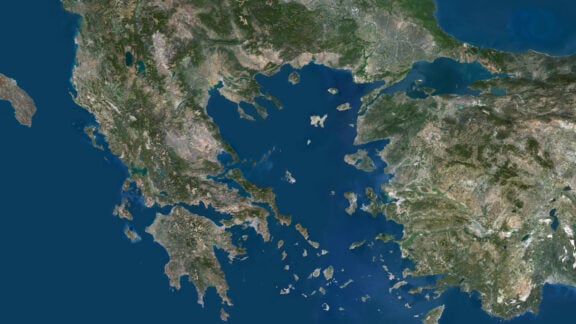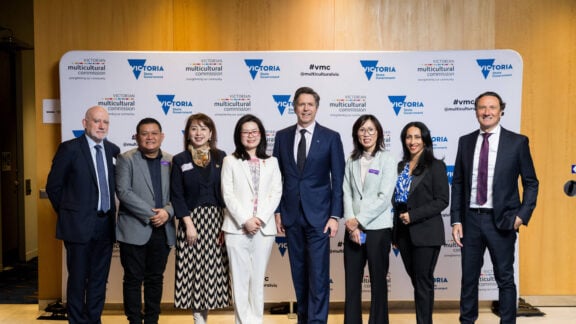Young, highly-skilled, with quality educational and professional backgrounds; the three women who talked to Neos Kosmos fit the “modern migrant” profile, as depicted by the recently released research report of the Australian Greek Welfare Society (AGWS). Despite their skills and qualifications, their transition to the Australian job market has not been smooth.
Dora Lakoumenta is a University of Melbourne graduate, holding a BSc in Genetics and a Post Graduate Diploma in Education. She left her birthplace, Melbourne, to live in the city of Patras. There, she managed the family business, an English language school, while teaching English as a second language for almost 20 years. Since returning to Melbourne in 2012, she has been working in a call centre.
“The role is a combination of customer service and tele-sales,” says Mrs Lakoumenta. “A high-stress, low paid job, really. But seeing the high cost of Melbourne living, upon my return, I thought that I should start working as soon as possible. I sent out many applications. There was no response. When an acquaintance informed me about this job, I took it. Today, I am not as stressed as in the beginning and yes, I would like to look for a better job. However, I have absolutely no experience or knowledge on how to write a professional resume or prepare for a job interview. Up until this stage, I never had to look for a job and I really do not know where to start.”
Alkmini Balda, on the other hand, was a fairly experienced job hunter. At least, that is what she thought.
“I had to forget all I knew about looking for a job. Things work differently here, recruiters and employers follow different rules,” she points out. She came to Melbourne with her two daughters, looking forward to a new, better life. She was optimistic and confident; the confidence of a professional with 20 years of international experience in high-profile organisations, who possesses impressive qualifications acquired from reputable universities in Switzerland and London.
“While waiting for my visa to be issued, I tried to come in direct contact with local head hunters; a very common practice in Europe. Those whom I managed to meet made it seem quite easy to find a job, possibly because they knew they didn’t have to find me a job until my visa was sorted out. This worked against me, as I could have benefited from working as a volunteer to build connections and Australian work experience”.
Right after her visa was issued, Mrs Balda was unpleasantly surprised with the level of response to her job applications. “I was only offered a few contract positions and I soon understood that any work experience outside Australia was either underplayed or not considered at all by human resource professionals. This might not be true for individuals with work experience in Coca Cola, Deloitte, PwC and the likes, I suppose.
“My understanding was that in order to minimise the risk, they would only consider candidates that were an exact fit to the job description, leaving out of the selection process candidates with transferable skills and future potential. A few of them also had a very negative perception of Greece. Finally, I felt that any qualifications I had did not matter much either.”
Mrs Balda soon came to the realisation that she had to adapt to the new conditions. So she set out to ‘re-package’ herself and her professional offering. With the help of a career consultant, she came to understand what recruiters were looking for and made a consistent effort to respond appropriately. Soon after she had a revamped resume, refreshed interview skills and a newly-learned technique to address ‘key selection criteria’, often requested as part of the selection process. There is a $1,500 price tag attached to all that. However, she highly recommends the investment, noting that “people need to be careful when selecting their career consultant; the professionalism, knowledge and quality of service varies”. Meanwhile, she took on a number of contract jobs, acquiring the much sought-after local work experience. Her structured approach finally brought results. She currently holds a suitable RMIT University position that she greatly enjoys.
“It is easy to be discouraged, even depressed by recurring rejection. You need to be persistent. Learn to promote yourself and be prepared to justify the exact reasons why you are the best fit for the role. I believe this is an area for the Greek community to provide support and enriched services, acknowledging the evolving needs of the population they serve,” Mrs Balda stresses. “People need to be properly informed,” she adds. “The way that the Greek media presented Australia a few years ago was misleading. They would talk about families who relocated with all expenses paid by employers, failing to mention that this was only applicable within specific industries, e.g. mining or when attracting employers with a rare skills set.”
Tina Nikiforaki is a love migrant. She left New York and a promising career in the fashion industry and came to Melbourne to live with her Australian husband. Despite having worked with brands such as Calvin Klein and John Varvatos, and with a Masters in Global Fashion Management and a degree in Economics, she had to go back to square one. Starting as a sales consultant, she never stopped looking for the next step in her career and is now a deputy manager in a high-profile chain store.
“I feel that I took many steps back,” she says about her personal experience of the local job market. “Recruiters started to respond to my application only after I added some local job experience at the top of my resume. But again, they would only offer me casual jobs in sales.” Her advice to newcomers would be: “Network! My current employer found me on LinkedIn, while I got my first job in Australia through a HACCI networking event. It’s also very important to be open to any job,” she adds. “It might be easier to first enter the job market and then, once you are in, look for your dream job.”
In our human capital-driven economy, the issue in question is not only about hurt feelings, stress management and working harder or smarter until you get noticed by an employer and get a suitable, quality job. It’s about a non-affordable luxury – letting talented individuals get lost in translation, stuck in unsuitable, low-skilled, low-paid jobs, when their skills, experience and knowledge could be major growth and prosperity contributors to the local economy, the Greek diaspora and society as a whole.
Fortunately, the people at AGWS are well aware of the issue and are already taking concrete action to resolve it. The organisation is seeking funds from the Australian government to implement their proposed Career Transition Program, which will operate along the same principles as those of their already successful Referral and Legal Information Services. The organisation’s CEO, Voula Messimeri, explains that the program will include seminars to assist newcomers in writing winning resumes and cover letters and developing essential job search and interview skills, non-technical skills such as communication and presentation and effective networking techniques and finally, to provide information on employment rights.
Another important component of the program will be “an annual careers expo, organised in partnership with other Greek community organisations” aiming to assist newcomers, and young people in particular, with career planning, issues related to skills and qualifications recognition and improvement. Additionally, according to Mrs Messimeri, through this event people will be linked to “volunteering and internship opportunities as pathways to employment”.

